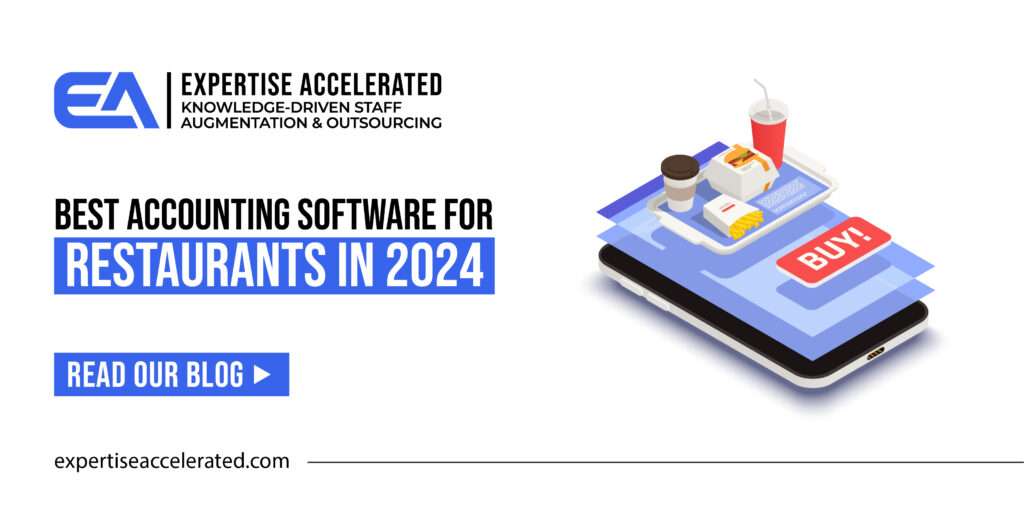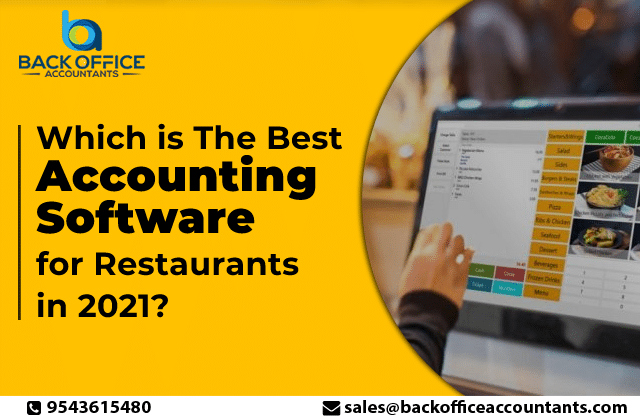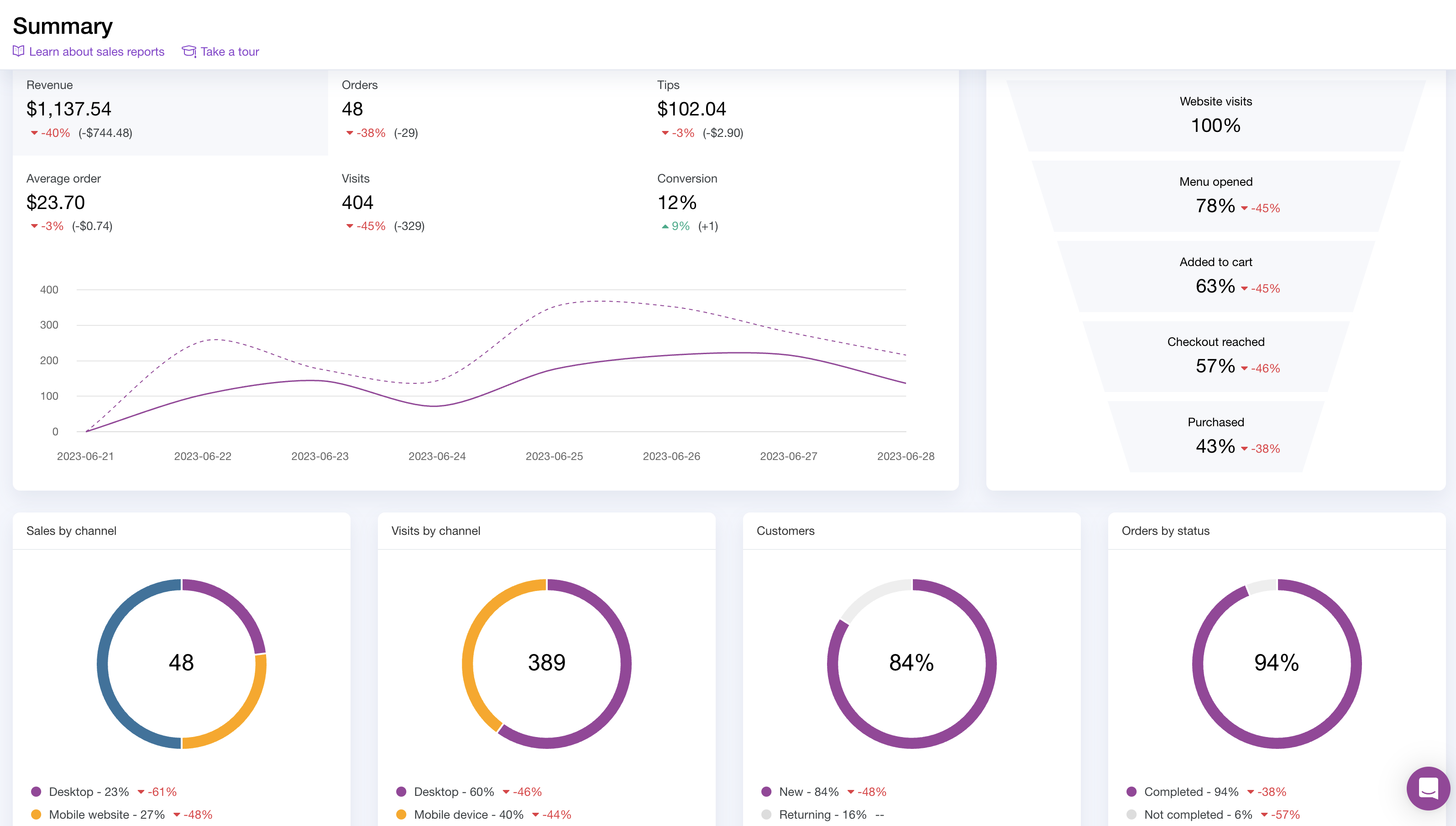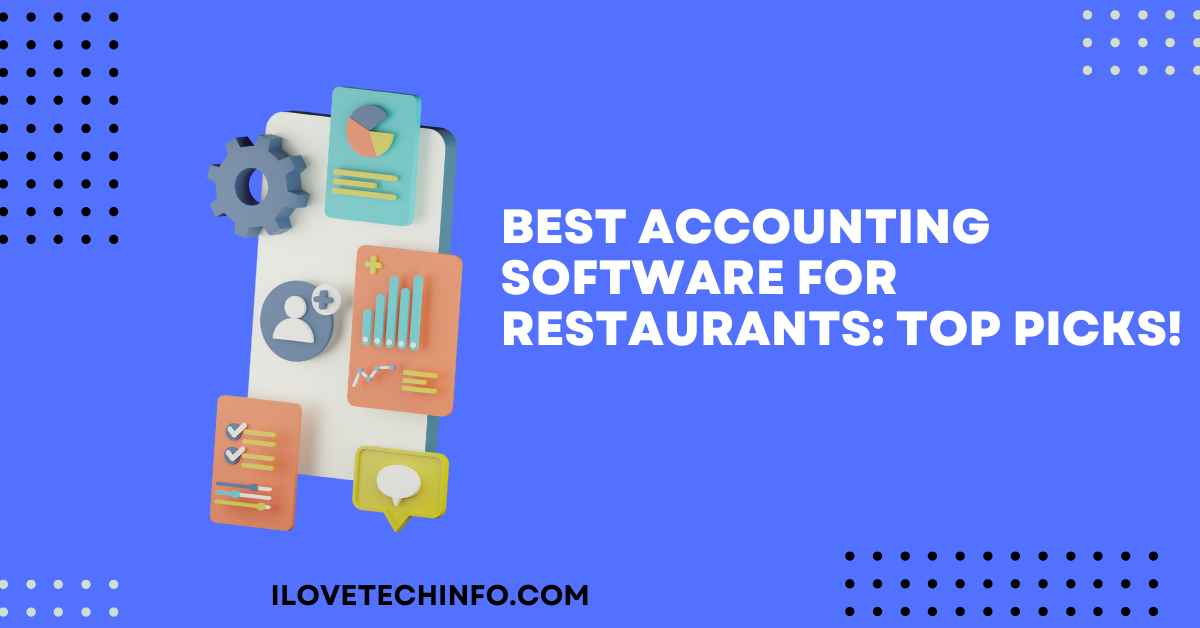For restaurants, the best accounting software should offer features such as inventory tracking, payroll management, and sales reporting. It should also have user-friendly interfaces and customizable options to meet the specific needs of the restaurant industry.
This allows for efficient management of finances and operations, leading to better decision-making and improved profitability. Running a successful restaurant involves much more than just serving delicious food. Efficient financial management is crucial for long-term success. Choosing the right accounting software can streamline processes, provide valuable insights, and help in making informed business decisions.
We will explore the best accounting software options for restaurants, taking into consideration the unique needs and challenges of the industry. Whether you run a small bistro or a bustling franchise, finding the right accounting software can be a game-changer for your restaurant’s financial health.
Industry-specific Needs For Restaurants
Restaurants have specific accounting needs, and finding the best software to manage finances is crucial. Streamline operations and enhance financial management with top accounting software designed specifically for the restaurant industry.
Running a restaurant business is a demanding task. From managing daily operations to keeping track of inventory, restaurant owners need a reliable accounting software that can meet their unique financial needs. Accounting software designed for restaurants can help streamline financial management, automate tasks, and provide valuable insights into business performance. In this article, we will discuss the best accounting software for restaurants that can help you simplify your financial management and stay on top of your finances.
Unique Financial Challenges
Restaurants face unique financial challenges that require specialized accounting software. For instance, managing cash flow can be a challenge due to the seasonal nature of the business, and the need to keep a close eye on expenses and revenue. Additionally, restaurants have to deal with payroll management, inventory control, and tax compliance, which can be time-consuming and overwhelming. The right accounting software can help you overcome these challenges and manage your finances effectively.
Inventory And Sales Tracking
Inventory control is critical to the success of any restaurant. You need to keep track of inventory levels, monitor food costs, and ensure that you have the right ingredients for your menu items. Sales tracking is equally important, as it allows you to monitor revenue and identify areas where you can improve profitability. With the right accounting software, you can automate inventory management and sales tracking, and get real-time insights into your business performance.
If you’re looking for an accounting software that can help you manage your restaurant finances, there are several options available in the market. Some of the best accounting software for restaurants include QuickBooks, Xero, and FreshBooks. These software solutions offer a range of features, including inventory management, sales tracking, payroll management, and tax compliance, that can help you streamline your financial management and grow your business.
In conclusion, accounting software designed for restaurants can help you manage your finances effectively and overcome the unique financial challenges that come with running a restaurant business. Whether you’re looking to automate inventory management, track sales, or ensure tax compliance, there’s a software solution that can meet your needs. By choosing the right accounting software, you can simplify your financial management and focus on growing your business.

Credit: expertiseaccelerated.com
Evaluating Restaurant Accounting Software
Choosing the right accounting software for your restaurant is crucial for maintaining financial health and streamlining operations. When evaluating restaurant accounting software, it’s essential to consider various factors that align with the specific needs of the food service industry. From seamless integration with POS systems to robust reporting capabilities, the software should cater to the unique demands of restaurant businesses.
Key Features To Look For
When assessing accounting software for restaurants, several key features should be prioritized to ensure efficiency and accuracy in financial management. These features include:
- Integration with POS systems
- Inventory management
- Multi-location support
- Customizable reporting
- Bank reconciliation
- Expense tracking
Integration With Pos Systems
One of the critical factors in evaluating restaurant accounting software is its seamless integration with POS systems. This integration enables real-time synchronization of sales data, simplifying the reconciliation process and providing comprehensive insights into revenue streams. By seamlessly connecting accounting and POS systems, restaurant operators can gain a holistic view of their financial performance and make informed decisions to drive profitability.
Top Accounting Software For Small Restaurants
Discover the top accounting software tailored for small restaurants, providing efficient financial management, streamlined operations, and accurate reporting for improved profitability and growth. Simplify your restaurant’s accounting processes with these best-in-class software solutions.
Running a small restaurant is no easy task. Besides managing the daily operations, you also need to keep track of your finances. Thankfully, there are accounting software solutions specifically designed for small restaurants that can help streamline your financial management processes. In this article, we will explore the top accounting software options for small restaurants, focusing on their affordability and user-friendly interfaces.
Affordable Solutions
When it comes to accounting software for small restaurants, affordability is a key factor to consider. You want a solution that fits within your budget without compromising on functionality. Here are some affordable accounting software options:
| Software | Price |
|---|---|
| 1. QuickBooks Online | Starting at $25/month |
| 2. Xero | Starting at $9/month |
| 3. Wave | Free |
These software solutions offer essential accounting features at affordable prices, allowing small restaurant owners to effectively manage their finances without breaking the bank.
If you’re looking for a broader selection of accounting software beyond restaurant-specific options, our 10 Best Online Accounting Software Providers: In-Depth Reviews & Comparisons post offers in-depth reviews that can help you make an informed decision.
User-friendly Interfaces
Small restaurant owners often have limited time and resources to dedicate to accounting. That’s why choosing accounting software with a user-friendly interface is crucial. Here are some options with intuitive interfaces:
- QuickBooks Online: With its clean and simple interface, QuickBooks Online makes it easy to navigate through various financial tasks.
- Xero: Xero offers a user-friendly interface that allows restaurant owners to easily access financial reports and track expenses.
- Wave: Wave’s user-friendly interface provides a straightforward accounting experience for small restaurant owners.
These software options prioritize ease of use, ensuring that even those with limited accounting knowledge can efficiently manage their restaurant’s finances.

Credit: www.backofficeaccountants.com
Preferred Picks For Large Restaurant Chains
Large restaurant chains require accounting software that can handle their unique needs and manage multiple locations efficiently. Here, we present the preferred picks for large restaurant chains, focusing on scalability and multi-location management, as well as advanced reporting capabilities.
Scalability And Multi-location Management
When it comes to large restaurant chains, scalability and multi-location management are crucial factors to consider when choosing accounting software. These chains need a system that can handle their growing business and seamlessly integrate with multiple locations.
With scalability being a top priority, the preferred accounting software for large restaurant chains offers the ability to easily add new locations and expand operations without compromising performance. This ensures that as the chain grows, the accounting software can keep up with the increasing demands.
Furthermore, effective multi-location management is essential for large restaurant chains. The preferred accounting software provides a centralized platform where all financial data from different locations can be consolidated and managed in a streamlined manner. This allows for better control and visibility across the entire chain.
Advanced Reporting Capabilities
Large restaurant chains need accounting software that goes beyond basic financial tracking and reporting. They require advanced reporting capabilities to gain valuable insights into their business performance and make data-driven decisions.
The preferred accounting software for large restaurant chains offers advanced reporting capabilities that go beyond standard financial statements. These capabilities include customizable reports, real-time analytics, and data visualization tools.
| Feature | Description |
|---|---|
| Customizable Reports | Generate reports tailored to specific business needs, such as sales by location, labor costs, and inventory analysis. |
| Real-time Analytics | Access up-to-date financial data and performance metrics to monitor trends and identify areas for improvement. |
| Data Visualization Tools | Present complex financial information in visually appealing and easy-to-understand charts and graphs. |
These advanced reporting capabilities enable large restaurant chains to analyze their financial data more effectively, identify trends, and make informed decisions to optimize their operations.
In conclusion, the preferred accounting software for large restaurant chains offers scalability and multi-location management features, along with advanced reporting capabilities. By choosing the right software, large restaurant chains can streamline their accounting processes, gain valuable insights, and drive better business outcomes.
Cloud-based Vs. Desktop Software
When choosing the best accounting software for restaurants, it’s important to consider the differences between cloud-based and desktop options. Cloud-based software offers the flexibility of accessing data from anywhere, while desktop software provides more control over data storage and security.
Each has its own advantages, so it’s essential to weigh the specific needs of the restaurant business before making a decision.
Accessibility And Mobility
Restaurants are fast-paced environments that require on-the-go access to financial information. Cloud-based accounting software allows restaurant owners and managers to access their financial data from anywhere with an internet connection. This means that they can keep an eye on their restaurant’s financial health even when they are not physically present in the restaurant. Additionally, cloud-based software is compatible with various devices, including smartphones and tablets, making it easier to access and manage finances on the go.
On the other hand, desktop software requires installation on a single computer, making it less accessible and mobile. It means that restaurant owners and managers have to be physically present in the restaurant or at the computer to access financial data. However, desktop software can be beneficial for restaurants with limited internet connectivity, as it does not rely on an internet connection to function.
Data Security Concerns
Data security is a significant concern for any business, and restaurants are no exception. Cloud-based accounting software providers often use advanced encryption methods to protect their clients’ financial data. Additionally, cloud-based software providers typically backup data frequently, ensuring that data is not lost due to unforeseen circumstances like computer crashes, natural disasters, or theft.
Desktop software, on the other hand, may be less secure than cloud-based software since it is installed on a single computer. If the computer is stolen, hacked, or crashes, the restaurant’s financial data could be lost or compromised. However, desktop software can be more secure if the computer is not connected to the internet and does not store sensitive data on a shared network.
In conclusion, both cloud-based and desktop accounting software have their advantages and disadvantages. Restaurant owners and managers must consider their specific needs and preferences before deciding which software to use. Cloud-based software is more accessible and mobile, while desktop software may be more secure in certain situations. Ultimately, the choice between cloud-based and desktop software comes down to the restaurant’s unique needs and preferences.

Credit: www.upmenu.com
Integrating Payroll And Employee Management
Integrating Payroll and Employee Management in your restaurant’s accounting software is crucial for streamlining operations and ensuring accurate financial records.
Automated Tax Calculations
Automated tax calculations simplify the payroll process and prevent errors.
Time Tracking And Scheduling
Efficient time tracking and scheduling tools help manage employee shifts seamlessly.
Case Studies: Successful Implementations
Successful implementation of the best accounting software for restaurants can lead to increased profitability and streamlined operations. Case studies show how businesses have benefited from utilizing this software, allowing for better financial management and decision-making.
Real-life Impact On Restaurants
In real-world scenarios, accounting software for restaurants has revolutionized operations. These tools streamline financial processes, leading to increased efficiency.
Financial accuracy has significantly improved, reducing errors and ensuring compliance.
Testimonials And User Experiences
Restaurant owners rave about the benefits of accounting software, citing simplified bookkeeping and enhanced reporting capabilities.
Users praise the user-friendly interfaces and detailed insights provided by the software.
Choosing The Right Software Vendor
When choosing the right software vendor for your restaurant, it’s crucial to consider key factors that can impact the efficiency and success of your operations.
Customer Support And Training
- Responsive support team available for assistance.
- Comprehensive training provided for easy adoption.
- Ensure support is available during your business hours.
Software Updates And Upgrades
- Regular updates for improved functionality.
- Seamless upgrade process to latest versions.
- Ensure compatibility with your existing systems.
Future Trends In Restaurant Accounting Software
AI and Machine Learning Innovations
In the realm of restaurant accounting software, AI and ML are revolutionizing operations.
Predictive Analytics for Inventory Management
Forecasting inventory needs is made efficient with predictive analytics tools.
Final Thoughts: Investing In Financial Management
Considering the importance of financial management for restaurants, investing in the best accounting software is crucial. It streamlines operations, tracks expenses, and manages inventory, ultimately optimizing profitability. With the right software, restaurants can efficiently handle their finances and make informed decisions to drive success.
Roi Of Quality Accounting Software
Investing in a quality accounting software for your restaurant can provide a significant return on investment (ROI) by reducing the time and effort required for financial management. With the right accounting software, you can streamline your bookkeeping, manage your inventory, and track your expenses, all while keeping accurate records for tax purposes. The ROI of a quality accounting software goes beyond just cost savings, it can also help you make better business decisions by providing you with real-time financial data to inform your decision-making process.
Making The Decision For Your Restaurant
When it comes to choosing the best accounting software for your restaurant, there are a few key factors to consider. First, you’ll want to ensure that the software is specifically designed for the restaurant industry, with features that are tailored to your unique needs. Additionally, you’ll want to look for software that is user-friendly and easy to navigate, so that your staff can quickly learn how to use it. Finally, you’ll want to consider the cost of the software, as well as any ongoing fees or support costs that may be associated with it.
Investing in a quality accounting software for your restaurant is an important decision that can have a significant impact on your business. By choosing the right software, you can streamline your financial management, reduce costs, and make better business decisions. When making your decision, be sure to consider all of the factors that are important to your restaurant, and choose a software that meets your unique needs. With the right accounting software, you can take control of your finances and set your restaurant up for long-term success.
Frequently Asked Questions
What Do Restaurants Use For Accounting?
Restaurants typically use specialized accounting software to manage their finances efficiently. This software helps them track sales, expenses, inventory, and payroll, ensuring accurate bookkeeping and financial reporting. It simplifies tasks like invoicing, tax calculations, and generating financial statements, enabling restaurants to focus on their core operations.
What Is The Best Accounting Software For Hospitality Industry?
The best accounting software for the hospitality industry is QuickBooks. It offers tailored solutions for managing finances, inventory, and payroll. Its user-friendly interface and customizable features make it a top choice for small to medium-sized businesses in the hospitality sector.
Is Freshbooks Good For Restaurants?
Yes, FreshBooks is good for restaurants. It offers features like invoicing, expense tracking, and reporting. It helps in managing finances efficiently.
Do Restaurants Need Bookkeeping?
Yes, restaurants need bookkeeping to effectively manage their finances, track expenses, and ensure accurate reporting. Bookkeeping helps restaurants analyze profitability, make informed financial decisions, and comply with tax regulations. It also helps them assess cash flow, manage inventory, and monitor revenue.
Efficient bookkeeping is crucial for the success of any restaurant.
Conclusion
To sum up, choosing the best accounting software for your restaurant can greatly streamline your financial operations and save you time and effort. With features like inventory management, payroll processing, and customizable reporting, the right software can enhance your efficiency and profitability.
Whether you’re a small eatery or a large franchise, investing in a reliable accounting software is crucial for your success in the highly competitive restaurant industry. Stay organized, make informed decisions, and focus on what you do best – serving delicious food to your customers.

